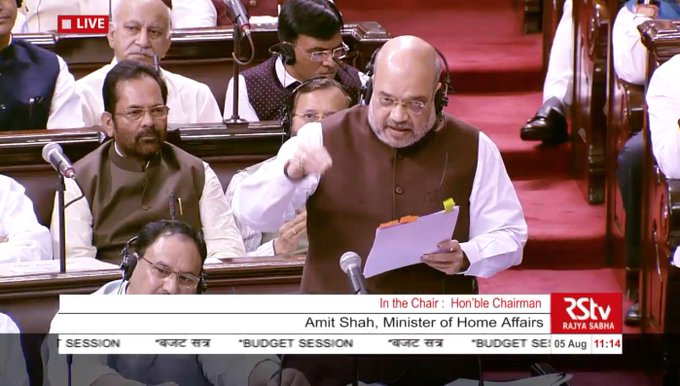India’s revoking of Article 370 from Jammu and Kashmir is likely to inflame tensions and increase the risk of violence, Amnesty International India said
The revocation is expected to cause unrest and wide-scale protests in the region. So far, the government’s response to dealing with protests in the state has been heavy-handed, and have led to gross human rights violations over the past few years.
Recent indefinite suspensions of telecommunications services in Jammu and Kashmir are also not in line with international human rights standards. While the authorities have the right to maintain public order, they must respect the right of the people to protest peacefully.
Urgent: Severe internet disruption registered in #Srinagar, #Kashmir with backbone access largely severed by India from 18:00 UTC; information blackout poses immediate risk to safety and rights of individuals; incident ongoing #KeepItOn
📰 https://t.co/ENx1iLc4nQ pic.twitter.com/jv0KMbp3CM— NetBlocks.org (@netblocks) August 4, 2019
Aakar Patel, Head of Amnesty International India, said:
“What Jammu and Kashmir has been witnessing over the last few days – the additional deployment of thousands of security forces, a blanket blockade of telephone and internet services, and restrictions on peaceful assembly – has already pushed the people of Jammu and Kashmir to the edge.
“To make matters worse, key political stakeholders have been placed under house arrest. Important decisions about Jammu and Kashmir are being decided by the Parliament without consultation with the people.”
Article 370 of the Indian Constitution, now proposed to be scrapped, guarantees special autonomy to the state of Jammu and Kashmir and gives independence over matters excluding foreign affairs, defence and communication.
HM Amit Shah: Jammu and Kashmir to be a union territory with legislature and Ladakh to be union territory without legislature pic.twitter.com/nsEL5Lr15h
— ANI (@ANI) August 5, 2019
Article 370 is widely seen as essential in maintaining the democratic relationship between India and Jammu and Kashmir. The central government has also proposed a division of Jammu and Kashmir into two territories, which would mean a weakening of regional governance powers.
Jammu & Kashmir Government: There will be a complete bar on holding any kind of public meetings or rallies during the period of operation of this order. It should be noted that there will be no curfew in place as reported in a section of the media. https://t.co/EGENEM6qUz
— ANI (@ANI) August 4, 2019





![Europe’s housing crisis: A fundamental social right under pressure Run-down appartment building in southeast Europe set before a moody evening sky. High dynamic range photo. Please see my related collections... [url=search/lightbox/7431206][img]http://i161.photobucket.com/albums/t218/dave9296/Lightbox_Vetta.jpg[/img][/url]](https://www.openaccessgovernment.org/wp-content/uploads/2025/04/iStock-108309610-218x150.jpg)





